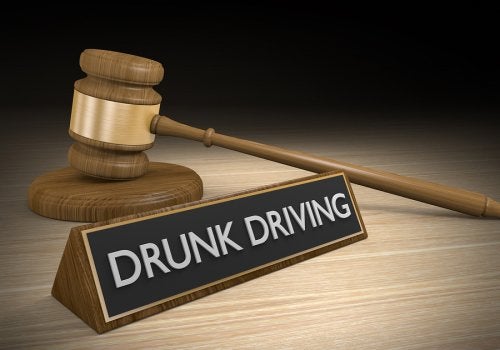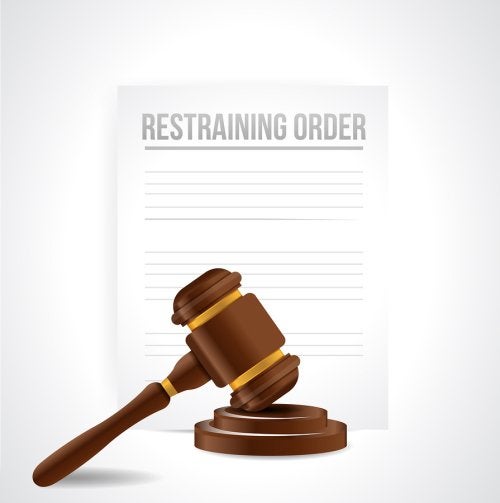-
What Is Implied Consent?
If you’ve been charged with drunk driving, you will need to have an attorney in Owings Mills explain the legal nuances of your case. Like other states, Maryland has established a rule of implied consent. This means that, if you are driving on the state’s roadways, you are presumed to have already consented to submit to a blood, breath, or urine test. The implied consent law applies to you if you’re pulled over by a police officer on suspicion of impaired driving and the officer asks you to submit to blood alcohol content (BAC) testing.
Since every driver has already given his or her consent to submit to testing, drivers who refuse to do so face legal penalties. If you’ve refused to take the test, your lawyer will inform you that you face a 120-day suspension of your driver’s license. If you refuse the test on a second occasion, the suspension will last for one year. Some people reason that it’s worth it to risk license suspension if it means they won’t be convicted of DUI. But in fact, refusal to submit to a test almost certainly won’t help your case, and it will only add to the penalties you could face.

““
-
Is Your Child Support Arrangement Fair?
Regardless of the type of child custody arrangement you have, it may be possible to get a child support order modified. Talk to a lawyer in Owings Mills who is knowledgeable about divorce law. Your family law lawyer may be able to file a petition to request a modified court order if you can demonstrate that you have experienced significant financial changes that affect your ability to pay the current support order. For instance, you may have suffered job loss or hour reductions. Or, you may have recently become responsible for paying child support for a different child.
As you’ll learn by watching this featured video, it may also be possible to request a modification of child support based on changes in the financial circumstances of the other parent. If the custodial parent has recently secured a higher paying job or has received a large inheritance, it may be possible to reduce the support obligations.
-
An Introduction to Co-Parenting
As difficult as divorce can be for parents, it is far more disruptive to a child’s life. However, responsible co-parenting is a way to limit the negative effects of a divorce on children and help them adjust to the new arrangement. Talk to a child custody lawyer in Owings Mills about creating a parenting plan that is in the children’s best interests.
You can learn more about co-parenting by watching this video. This life coach clears up common child custody issues such as finding a mutually agreeable communication method with the other parent and getting on the same page with regard to chores, discipline, bedtime, and extracurricular activities. This life coach stresses the importance of never saying disparaging things about the other parent where the children can hear.
-
Mistakes to Avoid After a Car Crash
Car accidents can occur in the blink of an eye. Due to their unpredictable nature, it’s essential to be prepared with the basic knowledge of what to do and what to avoid following a crash. For example, did you know that two simple words might jeopardize your claim? For guidance on this issue and many others, you can consult a personal injury lawyer near Owings Mills.

Apologizing for the Crash
Those two simple words that might compromise your case are “I’m sorry.” It’s human nature to apologize as a way of clearing the air, even if the problem was not the fault of the apologizer. But after a car accident, you need to resist the temptation to apologize to the other driver or to speculate as to the cause of the crash. The other driver may use this apology to claim that you were at fault for the crash. As a result, your compensation may be reduced or denied.
Neglecting to Document the Scene
Hiring an accident lawyer is an effective way to get the most money for your case, but even the most accomplished lawyer needs evidence to substantiate claims. The building of your case begins right after you call 911 and check for injuries. First, exchange information with the other driver. The basic information you need to exchange includes full names, contact information, insurance carriers, policy numbers, vehicle makes and models, license plate numbers, and driver’s license numbers. Next, take pictures of the crash site. Be sure to get pictures of the damage of both cars, the injuries of every involved party, and other evidence of property damage such as broken mailboxes or downed street signs. Then, write down a few notes about the weather conditions and traffic patterns. Write down what you were doing immediately prior to the crash.
Delaying Medical Care
If you are not seriously injured, you might be tempted to go about your daily routine and see the doctor later. But the insurance carrier may point to your delay in medical care as evidence that your injuries could have been caused by something other than the crash. Always get a medical evaluation as soon as the police clear you to leave the scene. Your lawyer will need a copy of your medical records and documentation of your medical expenses.
““
-
Recent Changes to Maryland’s Domestic Violence Laws
If you are a victim of domestic violence, you have the right to consult a family attorney in Owings Mills to discuss your legal rights and options. Your attorney can advise you of recent changes to domestic violence laws in Maryland , which took effect late in 2014. Prior to the passage of the new laws, Maryland had been the only state that required domestic violence victims to meet the standard of “clear and convincing evidence” before a protective order is granted. Now, your attorney must only show that there is a “preponderance of the evidence.” In other words, it’s easier for domestic violence victims to obtain an order of protection.
Another of the recent laws adds second-degree assault to the list of criminal offenses for which victims can request a protective order that is permanent in nature. Domestic violence victims should be sure to inform their family lawyer if a minor child was present during an act of violence. The third new law allows for enhanced penalties in these circumstances.

-
A Quick Look at the New DUI Law in Maryland
If you’ve recently consulted a lawyer in Owings Mills about legal representation for your DUI case, you may be informed of a new law that recently took effect this fall. DUI lawyers in Maryland have been evaluating the possible effects of Noah’s Law on their clients. The law was named in honor of a 24-year-old police officer in Montgomery County, Noah Leotta, who was killed during a routine traffic stop when a drunk driver struck him.
The new law mandates that any driver who is convicted of DUI or DWI is required to have an ignition interlock device installed. While ignition interlock devices are nothing new, what makes this law especially aggressive is that drivers can be required to use the devices for six months if a chemical test reveals a blood alcohol content (BAC) of 0.08% or higher-regardless of whether or not the drivers are convicted. If a driver refuses a Breathalyzer test, the interlock device must be used for nine months or the driver’s license will be suspended.

-
Sharing Legal Custody: Tips for Dealing with Disputes
After a divorce, children will primarily reside with one parent, even if both parents share custody. There are actually two different types of custody: physical and legal. Physical custody refers to where the kids maintain residency and legal custody refers to the right to make major decisions for the kids’ upbringing. If you share legal custody with your ex, you can speak with your child custody attorney in Owings Mills about strategies of successfully co-parenting.

Go to Mediation
The most effective way to deal with legal custody disputes is to prevent them from occurring. However, even if a dispute has already occurred, child custody mediation can help. You and the other parent will sit down with a neutral mediator, who will help you work toward a mutually agreeable solution that is in the best interests of the children. Mediators can facilitate discussions regarding the children’s religious upbringing, education, and healthcare, among other decisions.
Keep Each Other in the Loop
After the divorce, you may wish to avoid your ex completely, but this simply isn’t possible when you share children with him or her. Parents can reduce the possibility of a dispute by agreeing on communication methods and frequency in advance, and by agreeing to keep each other in the loop when something comes up. For example, if you receive updates from the school about soccer games, school pictures, or progress reports, you should promptly send the other parent a copy of the notice. Similarly, the other parent should let you know promptly if a child fell ill during visitation and needs to take antibiotics. For other types of medical treatment, such as administering psychiatric drugs, the permission of both parents is required.
Set Aside Emotions
When a dispute does arise, it’s helpful to spend a few days thinking about the matter before wasting more time arguing with your ex. This helps you get your emotions in check, think about the issue in a logical way, and develop ideas for compromising with your ex. Remind yourself that your only priority is to promote the best interests of your kids.
Put All Agreements in Writing
Secondary disputes can sometimes arise if one parent “forgets” about the agreement or claims that he or she never agreed at all. Written communication is always best. For instance, if you and your spouse agree to take the kids to different religious centers, sign a written agreement that neither of you will disparage the other religion in front of the kids.
-
Types of Protective Orders
A type of restraining order, known as a protective order, is a type of court order that plays an integral role in domestic violence law in Baltimore County . Protective orders are usually, but not exclusively, issued against other family members, household members, or former intimate partners. Family court attorneys can help you obtain an appropriate type of protective order. Your attorney will typically obtain a temporary order first, prior to being able to request a permanent order of protection. A temporary protective order goes into effect for no longer than six months, although it is typically in place for a much shorter period of time. Despite the name, a permanent protective order is not actually permanent. It goes into effect for a longer period of time; it may last for months or up to a year. However, your attorney may be able to get the protective order renewed or extended if you are still in danger.
Maryland domestic law also classifies these court orders according to whether the petitioner has had a relationship with the harasser or abuser. If so, then it is officially known as a protective order. If not, then your attorney will request a peace order on your behalf.

-
The Law Office of Kent L. Greenberg: Fighting for You
Since 1981, families throughout Owings Mills in need of divorce law guidance have turned to the Law Office of Kent L. Greenberg, P.A. Throughout his decades of experience handling divorce cases in and out of court, Mr. Greenberg has developed a reputation for personalized client care and exceptional attention to detail.
Our family court attorneys understand that every case involves unique challenges and requires a client-centered approach. We listen closely to our clients’ concerns and preferences, and develop effective strategies based on these issues and our in-depth understanding of divorce law in Maryland. In addition to family law, our practice provides exceptional legal representation for clients experiencing a number of other difficulties as well, including for those with personal injury cases and for those who have been accused of criminal offenses.
